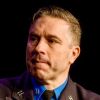Every day, EMS practitioners not only face new challenges, they receive learning opportunities. New research is published and new tools and techniques are developed at a pace unheard of in the past. Only a dedication to lifelong learning and continuous skills development can keep a prehospital provider up to the task of modern emergency medical response.
What timeless EMS truths do we hold onto? What practices have become obsolete as we learn better ways of doing our job? Five critical thinking skills can help us answer these questions and are the key to lifelong learning and effective professional development.
1. Seek out information
Take every opportunity to go on emergency calls from which you can learn new things. Continue to take classes pertinent to your profession or interests. Read articles. Watch videos. Listen to podcasts. It’s an exciting time for EMS right now, when information is being discovered, reviewed, evaluated and shared in ways we could not have dreamed of 10 or 20 years ago. This doesn’t mean that everything you encounter will be new, true or applicable to you, but lifelong learning relies first and foremost on being open to information.
2. Evaluate the information you’ve encountered
When someone presents you with new information, you may find it to be interesting, but you should ask yourself: Is it something you can use? Check A2B2C2 to evaluate how reliable it is.
- Authority: Does the source have expertise in this topic?
- Accuracy: Is this information verifiably accurate?
- Background: What is the context for this information?
- Bias: Might the creator or supplier of this information have a bias?
- Coverage: Is this information evaluated from different angles or only one point of view?
- Currency: How up-to-date is this?
3. Question both long-held beliefs and new information
On any EMS topic, such as assessment, airway management or bleeding control, whether the information you encounter is new or has been around for a long time, question it. This doesn’t mean stop believing in it or stop doing it. It simply means that whether new or old, in a class or after a call, take a moment to consider questions like:
- What are we trying to accomplish with this?
- How does this compare with alternatives?
- What is the evidence for this?
- In what scenarios might this be a good option or a bad option?
4. Integrate new information into routines
Almost every call, class or experience you have can produce something useful for you to add to your “tool kit” for life. Any EMS provider will have their favorite tools and techniques, but when things go wrong, great we must be ready with PACE alternatives to quickly transition from “go-to tool” to “Hail Mary.”
- Primary. This is your preferred choice, your “go-to tool” or technique that you have at the ready.
- Alternate. This is a back-up tool or technique that you can switch to when your primary doesn’t work out.
- Contingency. This is the option that you may not like but could still work in situations where your first choice and backup don’t produce results.
- Emergency. This is your last-ditch option and may not be as clean as your primary, alternate or contingency, but can still get you out of a tight squeeze.
5. Share information with others
This doesn’t mean that everyone who learns something is an expert on that thing. It means that, for a lifelong learner, everyone has something to contribute. Rookie or experienced, busy or quiet, rural station or urban response district, everyone has something of value to add. Part of lifelong learning is contributing to the pool of knowledge. Effective teaching, just like effective learning, begins with listening before talking.
Lifelong learning isn’t so much a commitment to taking long-format training classes for the rest of your life so much as it is a commitment to taking little moments out of each day to reflect on what has happened to you to improve your knowledge, skills, and attitudes. When you are a EMS provider, every day is different, every day is a challenge. By seeking, questioning, evaluating, integrating and sharing, every day is an opportunity to get better at a job where people rely on you for their lives.
This article, originally published August 27, 2018, has been updated with a video and additional resources.









